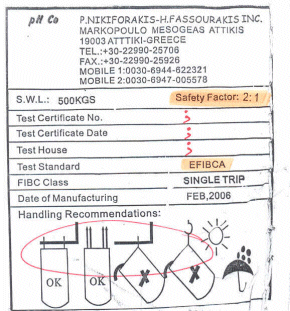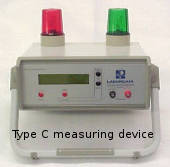|
|
Some inconvenient truths
| For more than 30 years the story of flexible intermediate bulk containers has been one of success. There are few other products the market for which has grown so steadily and in such an enormous way. Since the industry's beginning the number of manufacturers has steadily increased every year. But this fact does not only have positive aspects. Certain negative developments can be observed which pose a real danger of violating the good reputation of the product and its producers. Who are the principal parties in this business and which are the negative matters they should heed? Each link in the chain – manufacturer, supplier/trader, user – has to play a responsible role. But some of them are doing their job in such a way that the chain is going to break. Mostly it is the manufacturers who will suffer. Let us look at the individual parties. Unbelievably, there are a considerable number of manufacturers, suppliers and users which have none of the relevant standards in their files. They rely on information given by "experienced people" or by test houses. |
Every day Labordata receives questions from around the world showing such gaps of knowledge. The consequences of this carelessness are disregard for the rules, missing certificates, wrong labels and bad quality. There are manufacturers and suppliers who print invented certificate numbers on their labels and there are users who are credulous enough to believe them to be correct. |
A user should ask for the certificate belonging to the bags he intends to buy.Serious manufacturers, as well as serious suppliers of FIBCs, add a valid certificate to their offer or to their delivery without being asked. If a user does not receive a certificate automatically he should ask for it and he should compare it carefully against the delivered bags. He has the right to get it and the obligation to check it. The certificate number and the test house must be shown on the label of every bag. Unfortunately, the abuse of test certificates is not a rare event. There are a lot of inexperienced people who jump into the market as FIBC suppliers. Serious manufacturers should be cautious and watch their own good name. Many traders have no idea of the product they are trying to sell. They represent the main party responsible for violating and misusing the rules. The label shown here is an extraordinary example of stupidity and irresponsibility. No standard, neither EFIBCA nor any other, allows a safety factor 2:1. Manufacturers and suppliers who reduce the safety factor in such a way, and users who accept such dangerous reduction, should be taken to court. They are playing with the health and lives of people. |
(66)










